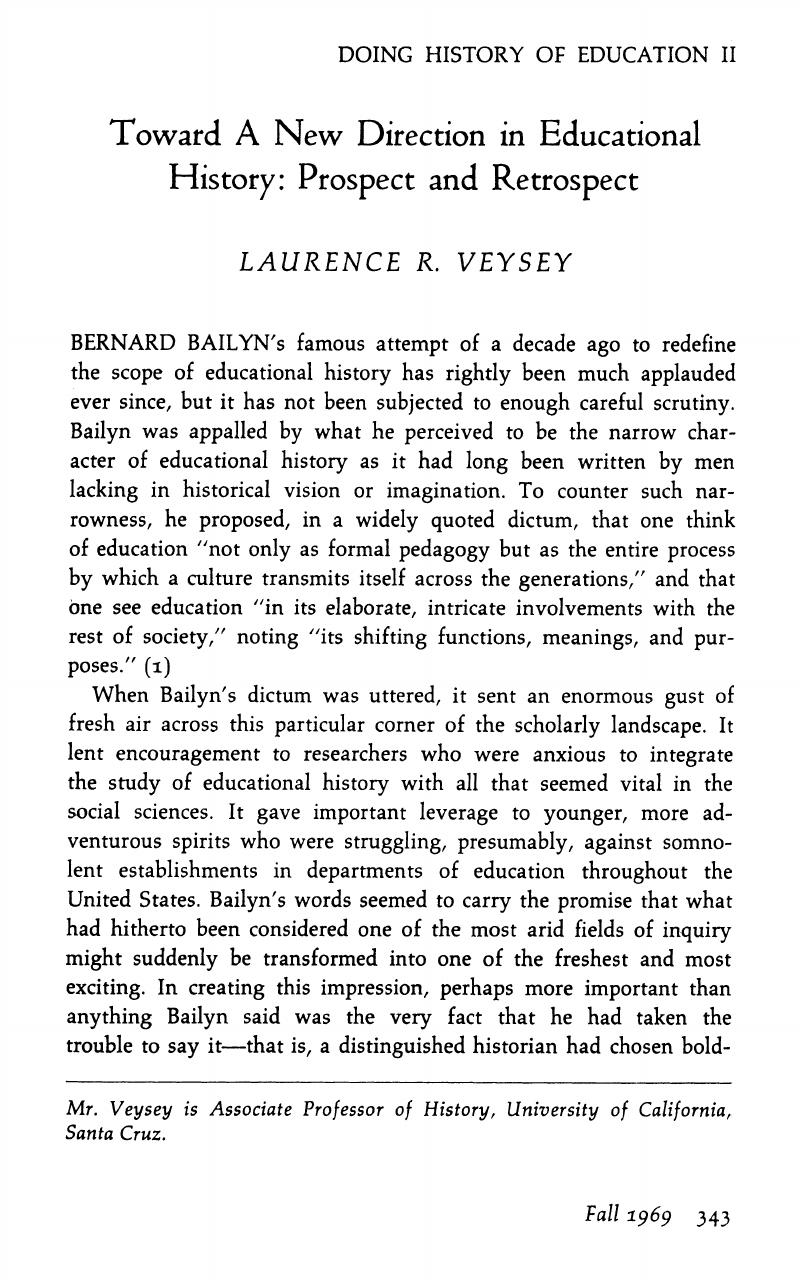Article contents
Toward a New Direction in Educational History: Prospect and Retrospect
Published online by Cambridge University Press: 24 February 2017
Abstract

- Type
- Discussion: Doing History of Education II
- Information
- Copyright
- Copyright © 1969 by New York University
References
Notes
1. Bailyn, Bernard, Education in the Forming of American Society (New York: Vintage Books, n.d.), p. 14.Google Scholar
2. Ibid, p. 48.Google Scholar
3. For evidence of Bailyn's explicit aversion to theory, see his remarks in Sidney Hook, ed., Philosophy and History (New York, 1963), pp. 92–101.Google Scholar
4. To be sure, the term “society,” possessing certain organic, unitary implications, could be traced to Herbert Spencer and his American disciples, far back in the mid-nineteenth century. But it had been more of a descriptive term, far less oriented toward social action, than it later became on the lips of reform-minded social scientists and popular publicists during the Progressive Era.Google Scholar
5. Veysey, Laurence R., The Emergence of the American University (Chicago: University of Chicago Press, 1965).Google Scholar
6. Money-making was not yet a major motive for going to college in 1890 or 1900. It was not yet widely believed that a degree would actually give one a higher earning capacity, because the popular myth that one could do best by working one's way up in Horatio Alger fashion was still too pervasive. If anything, a college education was still thought of as a disadvantage for a successful business career.Google Scholar
7. Or, in the context of acculturation, three types: family, peer group, and school.Google Scholar
- 5
- Cited by




